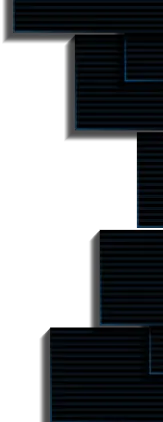BadgerDAO - A DAO promoting Bitcoin
Author: Parag

Badger is a decentralized autonomous organization (DAO) dedicated to developing products and infrastructure to help Bitcoin thrive in DeFi. It was founded by Chris Spadafora. Further, the mainnet for BadgerDAO was launched on 3rd December 2020.
Badger DAO offers an environment where DeFi projects and the web3 community may produce and release collaborative products. A developer earns some fee and BADGER tokens for each implementation via the developer mining pool.
The total number of BadgerDAO users has grown significantly, crossing 10K currently.

Currently, there are 23,876 global BadgerDAO users with 43 total vaults and more than 240 Million USD in treasury.
BADGER
BADGER, an ERC-20 native governance token of BadgerDAO has a fixed max. supply of 21 million.
bBADGER: The interest-bearing Vault token you get in return for depositing BADGER in a single asset Sett Vault is called bBADGER. The BADGER deposited is represented by bBADGER. The value of bBADGER rises against BADGER as interest accumulates inside the Vault.
Here are the multiple ways BADGER and bBADGER can be used:
- Governance of BadgerDAO: Propose, comment on, and vote on the protocol’s future.
- Sett Vaults: Put your BADGER in to get a bBADGER token and redeemable goodies.
- Unit Protocol: mint USDP with a Collateralized Debt Position (CDP) using BADGER as collateral (50 percent collateral ratio).
- Pooltogether: Participate in a pool for a chance to win a weekly reward and POOL tokens as a bonus.
- Cream: Borrow on Cream using bBADGER and earn interest on the assets you supply.
Here are the charts showing the current bBADGER supply and holders:

DIGG
A token with elastic supply is one whose total supply is not fixed but instead adjusts on a regular basis. The Badger DAO governs DIGG, which is the first decentralized elastic-supply cryptocurrency tethered to the price of Bitcoin. The primary purpose of this solution is to eliminate the requirement for centralized parties to hold your BTC in order to use it in DeFi protocols. To keep a peg to BTC, DIGG uses elastic parameters incorporated into its smart contracts.
Unlike other cryptocurrencies, where you know that if you buy 1 BTC, you will always have 1 BTC as long as you don’t sell or lose it if you buy 1 DIGG, your balance will fluctuate depending on rebases; you may see your balance increase if supply expands and decrease if supply contracts.
DIGG users over time is also constantly rising, as depicted here:

BadgerDAO
Badger is a community-run organization at its core. As a result, significant modifications to BadgerDAO must go through the Badger Improvement Proposals (BIPs) process, which involves the entire community. Adjusting fees for Vault goods, committing treasury funds to support grant programs, and making big purchases like the badger.com domain name are all activities requiring BIPs.
Here is the total current data of Badger holders and BadgerDAO fees:

At its most basic level, a BIP necessitates:
- Discussions: Badger Discord, or forum, and anywhere else across the community are the primary spots where the BIP ideas get initiated.
- Forum Feedback: To begin the initial community conversation, a community member creates a Request for Feedback (RFF) in the Badger Discord. Following the discussion, a more detailed version of BIP is circulated on the Badger forum for at least five days of debate and modification. Any of the Badger community members can propose a BIP.

- Forum Vote: Minimum vote holding (quorum) of at least 50% votes is required.
- Snapshot Vote: After the forum reaches quorum, a core Badger team member will upload the BIP (project proposal) to Snapshot.org for voting by BADGER token holders. This vote generally lasts three days, but it might be abbreviated to 24 hours in emergencies. Proposed BIPs must be approved by a simple majority to be passed.

- Implementation: After achieving a successful snapshot vote, the signers deploy code, make the payments, and begin the BIP implementation.
- s deploy code, make the payments, and begin the BIP implementation.
Badger Council
BIP 28 formed a Council of 7 members, 3 from the core team and 4 from the community, to handle funding submissions in February 2021. A forum nomination process and a community Snapshot vote were used to select the first members of the Council. Following that, vacancies were filled by a nomination by an existing Council member, followed by a vote of the Council.
The Council’s debates and votes are broadcast live on the Badger Discord channel #council-deliberation.
Treasury
BadgerDAO makes money by charging users fees to utilize their products, including Badger Bridge and Sett Vaults. The BadgerDAO treasury comprises these fees and outside investments and native tokens held in reserve.
Badger’s governance process manages the treasury, which is presently worth over USD 240 million, with community ideas and on-chain votes used to make binding choices on significant investments.
Participate
Joining the Discord server is the most significant way to get more active with BadgerDAO as a community member or paid contributor. Members of the BadgerDAO team post several times per day, and there are posts concerning all BadgerDAO products and upcoming events that you may check on Twitter, etc.
Developers and yield strategists are in high demand at BadgerDAO. There are also possibilities to join the product economics, marketing, support, and community-building teams.
On Github, the majority of BadgerDAO code is open source.
If you want to help out with BadgerDAO, join the Discord, check around, discover a problem you can solve, and start assisting. There’s no need to seek authorization or wait for approval. Smaller first initiatives are frequently the first step toward project-based work, part-time or full-time team roles.
At any time, you can get more involved with BadgerDAO. At BadgerDAO, though, there are some more formal ways to connect with possibilities. These are some of them:
- Badger takes part in Gitcoin grants, used to crowdfund open-source, good public projects in the crypto industry. In the current round, there are over ten project bounties active.

- Badger is a happy supporter of ETHGlobal’s hackathons and other events that help young talent develop smart contract development. Keep an eye on Discord or sign up for ETHGlobal’s email list to be notified when the next event is announced.

- Bounty of the Badger Billboard: The Discord channel offers connections to various small projects, and Badger also awards on a freelance basis.
Sett
SETTs, also called Sett Vaults or simply vaults, are among BadgerDAO’s main products.
They are vaults where users deposit their assets to make returns. Following the user’s deposit, the smart contract puts those assets to work by executing the selected strategy for the sett on which the money was invested.
Users may earn an optimized automatic yield without having to do all the heavy labor, such as research, protocol understanding, gas expenses, and many transactions.
Some vaults are additionally incentivized with Badger, which means that in addition to the underlying APY users can earn from the strategies themselves, they can also earn the governance token, depending on the exact sett.
Badger Bridge
Badger Bridge is a BadgerDAO key product that is handled in conjunction with the Ren Protocol. It enables users to transfer BTC from Bitcoin blockchain to Ethereum and obtain a renBTC or WBTC token in return, which are completely collateralized Bitcoin representations on Ethereum. They are backed 1:1 by Bitcoin and maybe swapped back into BTC at any time.
The renBTC and wBTC tokens can be deposited in Sett Vaults to earn yield, used as collateral on protocols, swapped for various tokens, or used in any of the additional ways that DeFi has to offer.
The Bridge serves three primary purposes:
- Mint: Takes BTC from the Bitcoin network and sends it to Ethereum as renBTC or wBTC.
- Mint & Earn: Takes BTC off the Bitcoin network and puts it into one of Sett Vaults that pay out a yield.
- Release: Vault positions, renBTC, and wBTC on Ethereum are converted to BTC on the Bitcoin blockchain.
Boost Optimizer
The BadgerDAO community voted to award extra BADGER rewards to users who participate in governance and support the BadgerDAO ecosystem by keeping Badger native assets - BADGER and DIGG - in their wallets, a mechanism known as Badger Boost.
- Connect your wallet to badger.finance.

- Select Boost Optimizer from the Boost dropdown menu.
- Check out your current Boost.
The Boost Optimizer analyses your Stake Ratio (native to non-native) and displays the native and non-native balances in your wallet to determine your boost multiplier.
Your current Boost level is indicated by the color code, which ranges from Basic Badger (orange) to Frenzy Badger (red).
A notice will appear below the native assets box, indicating the amount of extra native assets required to boost your Badger Boost. Your Badger icon should change and your Boost score should increase if you deposit that money in the Badger App.
- Creating a boost multiplier model
You can vary the numbers in the calculator to find out how your Boost score changes at different asset levels. The asset field will change green if you adjust upward, whereas the asset field will turn red if you adjust downward.
It’s also worth mentioning that, while lowering your non-native position may enhance your boost multiplier, you’ll get fewer Badger rewards in your non-native setts in the long run.
Examine Your Badger Leaderboard Position: Click “View Leaderboard” to see how your Boost stacks up against other Badgers. You’ll be able to see how many people fit into each group.





Subscribe to receive Alpha!
Join 4.3k subscribers from renowned companies worldwide and get a weekly update in your inbox. Stay updated on the latest and finest projects and product updates.

